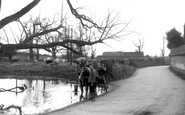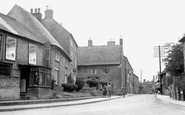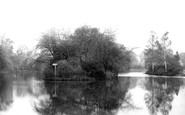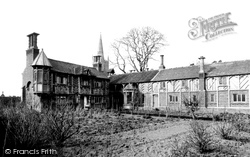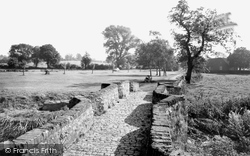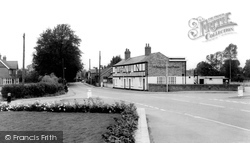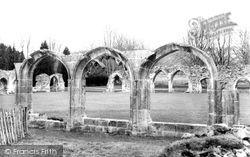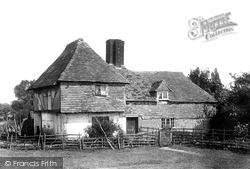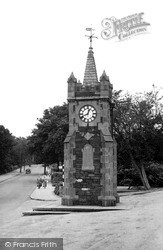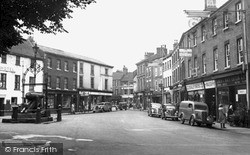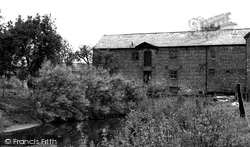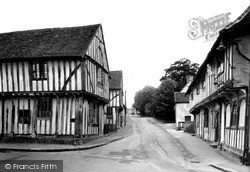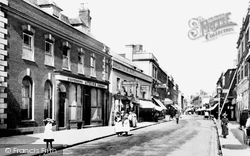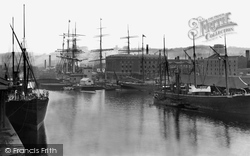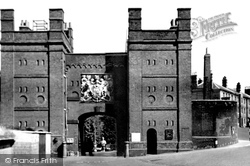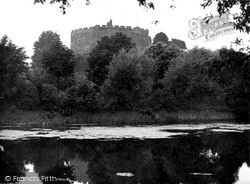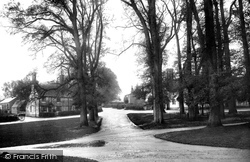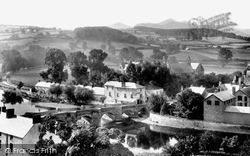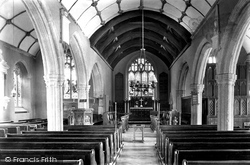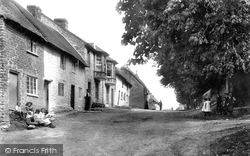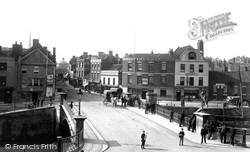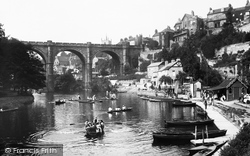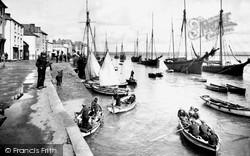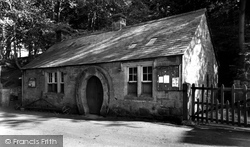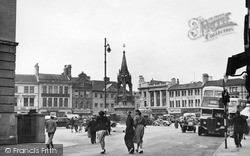Places
Sorry, no places were found that related to your search.
Photos
5 photos found. Showing results 921 to 5.
Maps
83 maps found.
Books
Sorry, no books were found that related to your search.
Memories
1,127 memories found. Showing results 461 to 470.
A Childhood At Sutton Flats, Pendleton
I was born in 192 Sutton Flats and Christened at St. Thomas's. My older brother Johnny and I were very happy there and both attended Halton Bank School. Our auntie, uncle and cousins lived close by in another ...Read more
A memory of Salford in 1950 by
Growing Up In Handley
My family moved to Handley in 1947 and I spent the rest of my childhood there. Our family name is Harris and my parents were Drs Paul and Zoe , they had five children. We lived off the road to Deanland. I never could ...Read more
A memory of Sixpenny Handley in 1950 by
Fond Memories
I lived at Mid Shirva Farm from 1950 till 1964. My father was the byreman, he was known as Wee Jock and my mum was Jan. I had a happy time growing up there; the summers seemed to be endless. I played in the fields during the harvest, ...Read more
A memory of Twechar in 1950 by
Pit Row
I remember my aunt Bett and uncle Jack Young who lived in Loyd St. The front of house was were you came through the arch under railway line. Bett used to run a little shop out of the scullery at the back. They later worked at the glass ...Read more
A memory of Lemington in 1950 by
Hilly Fields
We lived at the bottom of Lavender Hill and went to St Michael's School. Hilly Fields, Whitewebbs, Stapleton's farm, Tinky Tops, Flash Lane; they were all our stamping ground. My brother Bob also used to run along the tops of the 14 ...Read more
A memory of Enfield in 1950 by
Hop Picking
As a young lad, I went with my family to pick hops near Staplehurst village, my cousin and I used to swim in a nearby river that had a bridge across it and arches under the bridge, and the arches were a great place to change into our ...Read more
A memory of Staplehurst in 1950 by
Philip Ladds Nursary
Albert Cant was my maternal grandfather. Other members of my family associated with the company were my father, Sidney Ladds and my aunt, Jo Ladds. My father ceased his association well before closure but my aunt continued ...Read more
A memory of Swanley in 1950
Mr Tite,S Shop
My memories of West St, opposite Sid Smith's cobblers shop in the photo, Mr Tite's shop - he used to come down 3 or 4 steps from his living room, he sold lots of halfpenny and penny sweets - the best buy was 1 penny packet of broken ...Read more
A memory of Moulton in 1950 by
Trams, Baths, Cinemas...
My parents had a shop in Balsall Heath Road not far from Cannon Hill Park - there was a murder committed there around that time. I used to catch the tram to town and in Lewis's basement you could get crabs' legs loaded with ...Read more
A memory of Birmingham in 1950 by
Memories Of Picktree Village
Aged 7, with my parents, we moved from Hadrian Avenue, Chester le Street to 'Woodside', Picktree Village in 1951, where we kept hens and three pigs. Fred Scott had the nearby farm and delivered the milk each morning. He ...Read more
A memory of Picktree in 1950 by
Captions
1,233 captions found. Showing results 1,105 to 1,128.
Beyond is the crocketted spire of the church, which also received the Gregory Treatment: it is very much over-restored.
On the south-east side of the village the five-arch stone bridge, perhaps of the 16th century, steps quietly across the very reedy Rotherby Brook.
The fake timber framing is ill considered and out of place, while the rear extension leaves much to be desired. The village along Main Street possesses no outstanding architecture.
These ruined windows and arches are the remains of the cloisters. Situated in the north-west Cotswolds, Hailes Abbey was founded in 1246.
This is a 16th-century building par excellence, much altered and added to down the centuries; it is timbered, tile hung and jettied, and bears a cluster of tall chimneys.
The fake timber framing is ill considered and out of place, while the rear extension leaves much to be desired. The village along Main Street possesses no outstanding architecture.
It was erected in 1907 as a memorial to M J B Baddeley, whose guide books were greatly esteemed at that time and for much of the earlier part of the 20th century.
Much of the distant area is now pedestrianised.
Miss Billenge, who then ran the mill, always kept the wheels turning to provide the power, although at times lights would flicker throughout the village if too much power was being used at any one
On the right are Tudor Shops, a high quality Tudor range, with arched shop windows on the ground floor, restored between 1978 and 1981.
Although spoiled by modern development, the tangle of streets around the old town is worth exploring and there is still much fine Georgian and Victorian architecture to be seen.
This meant that once again Bristol could compete for trade; throughout much of the 19th century it had lost business owing to high dock charges levied by the money-grabbing dock company.
The almost intimidating main gate in Dock Road was built in 1719; the Royal arms in coloured relief above the main arch are those of George III, added in 1811.
By the mid 16th century much of the castle was in ruins, though some construction work was done at this time, including the superb banqueting hall.The castle was sold to the corporation in 1897 by
These have gone and there are much more modest trees in their place. The village is a mix of 17th-century timber-framed cottages, and 1820s and 1840s to 1850s Bedford Estate cottages.
In the foreground is the multi-arched bridge across the River Honddu, which lends its name to Brecon's Welsh designation – Aberhonddu.
Beyond is the crocketted spire of the church, which also received the Gregory Treatment: it is very much over-restored.
Much of the church is 15th-century, restored in the 1860s. Wall plaster has since been removed to reveal bare stonework. There is a Charles I letter over the north door.
Under the spreading chestnut trees of St Mary`s churchyard, and on the opposite side of the village street, the photographer`s activities generate much interest from a mixed audience of both children
Since 1890, there has been much change here; on the left hand side are nasty 1960s rebuilds, and several others have been rebuilt on the right.
The waters glide under the noble railway viaduct with its lofty arches and embattled parapet.
Wicker baskets carried by the ladies (in the right-hand rowing boat) were very much a feature of life until quite recent times.
The par- ish, which included Etal, Kimmerston, Hetherslaw and Crookham, suffered much during the wars with Scotland.
It is a town with sprawling suburbs and a centre marred by ring roads and the enormous Four Seasons Shopping Centre (1972-76), which demolished much of the northern part of the old town.
Places (0)
Photos (5)
Memories (1127)
Books (0)
Maps (83)



